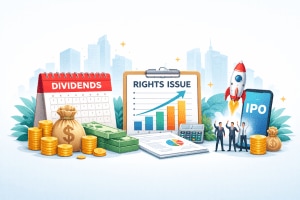By Sun Huang
In the digital age of finance, cryptocurrency transactions have reshaped our understanding of money, opening the door for new investment opportunities but also new types of scams. As cryptocurrency garners more mainstream attention and 7% of Indians own crypto according to the UN, knowing how to safeguard oneself from potential fraud and scams is imperative. Let’s check out a comprehensive guide on how to stay safe in the blockchain finance world.
1. Knowledge is power
Do not touch things that you have no clue about, especially when it’s about money. Before engaging in cryptocurrency transactions, familiarize yourself with basic concepts. This includes understanding the basics of blockchain, how transactions work, and the significance of public and private keys. Solid foundational knowledge makes it less likely for potential scammers to exploit any gaps in your understanding.
2. Choose secure wallets
For those who are new to cryptocurrency trading, opting for a reputable and secure exchange and directly using their wallet service to keep your crypto assets is the easiest way to begin your journey. If you are experienced and understand how to protect your wallet, there are two wallet types you can consider: hardware wallets and software wallets.
a) Hardware wallets:
Consider using a hardware wallet, which allows you to store your private keys offline, ensuring a higher level of security against online attacks.
b) Reputable software wallets:
If opting for a software wallet, then it is crucial to choose a wallet with robust security features and also check their user reviews. Also, ensure it has two-factor authentication and is regularly updated.
3. Choose exchanges wisely
The safety of your assets is often as strong as the platform you’re trading on. Always select exchanges with a strong reputation for security. Look for features like:
a) Management of user assets:
Does the exchange employ Merkle tree technology to allow users to verify their assets? Exchanges should have sound policies and agreements on how user funds should be managed.
b) Team and investors:
It is important to know who is running the exchange and what is their background in security, blockchain, and managing a company. Knowing who the investors are will be a plus, as you will be able to tell if the company is backed and verified by reputable venture funds, banks, or even the government.
c) 2FA (Two-Factor Authentication):
This feature requires a second step to confirm your identity when logging in. Also, a secondary verification process can further shield your assets and data.
4. Beware of phishing attempts
Bad actors often create fake websites or emails mimicking legitimate services to steal your information and digital assets. The following tips will help you avoid potential pitfalls while conducting digital transactions:
a) Verify URLs:
Always ensure the site starts with ‘https’ and matches the exact official domain. The best practice is to bookmark the websites, as searching for the site on search engines will increase your exposure to fake sites.
b) Avoid clicking suspicious links:
Refrain from clicking links from unverified emails or messages. Instead, navigate directly to the official platform to be safe.
c) Use browser extensions:
Browser tools can help identify and block potential phishing sites.
5. Refrain yourself from sharing personal information
a) Refrain from over-sharing:
Sharing unnecessary details exposes you to social engineering risks. Remember, legitimate platforms will never request it.
b) Customer service:
Always ensure you are speaking to the right customer service. It is common for scammers to pose as customer service to extract your personal information. Check on the official sites and social media to ensure you have the right channel.
7. Be skeptical of unrealistic promises
Cryptocurrencies, by nature, are volatile with a certain level of risk, and no legitimate project can guarantee profits or unrealistic fixed incomes much higher than normal markets. Beware of anyone guaranteeing consistently high returns.
8. Guarding against potential eavesdroppers
It’s crucial to ensure your internet connection is trustworthy and secure. Avoid using public Wi-Fi when making cryptocurrency transactions, as it may expose you to ‘man in the middle’ attacks, where hackers intercept and potentially alter communications.
9. Software updates
Ensuring that your device’s operating system, wallet software, and other related applications are up to date is a primary defense against many online threats. Developers often release updates to fix security vulnerabilities.
10. External audits and verification
A good way to verify a crypto platform’s security is by checking if it is audited or verified by an independent and reputed third party, such as ISO. For example, ISO27001 certification demonstrates that one exchange has established and maintains a robust framework for managing and protecting sensitive information, including user data and financial assets. It signifies the exchange’s commitment to information security, risk management, and data protection, which can instill confidence in users and stakeholders regarding the exchange’s security practices.
11. Enable passphrases and PINs
Many wallets offer additional security layers like passphrases or PINs. Activate them as it adds another layer of security, ensuring that even if someone gains access to your device, they can’t access your funds without the passphrase or PIN.
12. Backups
Always back up your wallet, especially if it’s a software wallet. Also, store backups in multiple secure locations. In case of device failures or other issues, backups can be the key to recovering your assets.
The cryptocurrency landscape is both exciting and challenging. While it holds immense potential, it’s not without risks. By following the guidelines mentioned above and staying vigilant, users can significantly reduce the chances of falling victim to scams and fraud. Remember, in the decentralized world of cryptocurrencies, you are your bank to conduct self-custody of digital assets, and the onus of security often lies with the individual. Through due diligence, one can navigate this dynamic realm confidently and safely.
The author is chief security officer,general manager, XREX








